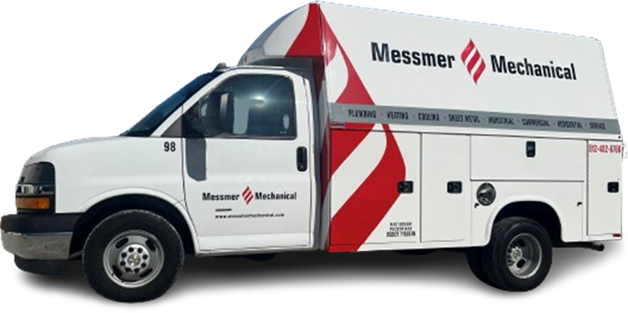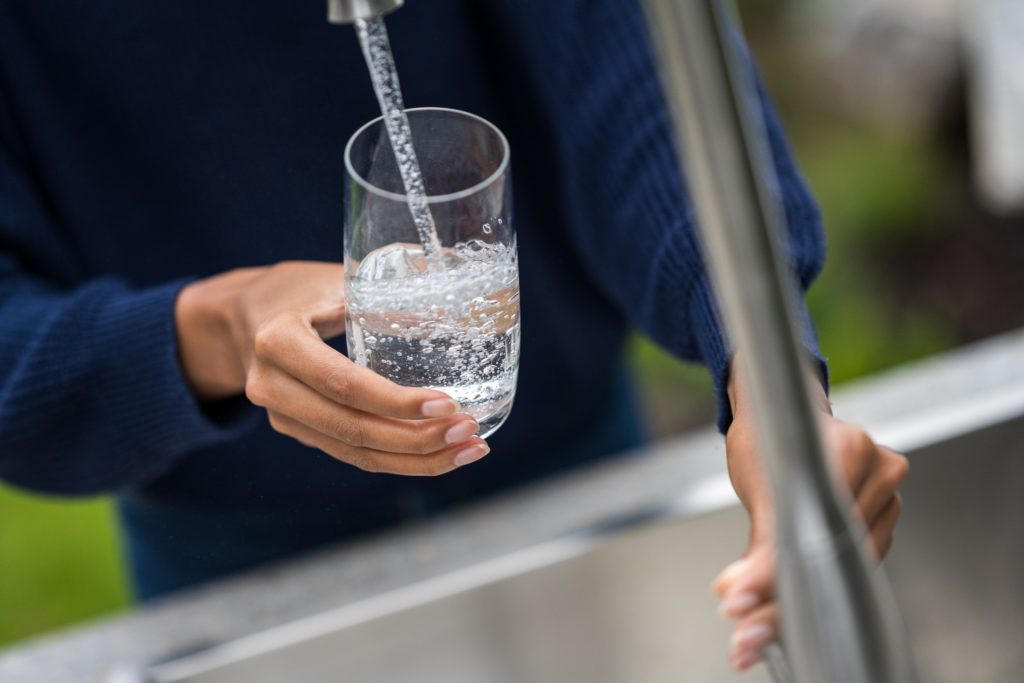Most homeowners assume that the water flowing from their faucets is clean and healthy as can be. After all, if it weren’t you’d know, right? Not necessarily. Even water that looks, tastes, and smells perfectly fine can contain unhealthy amounts of impurities that can damage plumbing and, even worse, be harmful to your family’s health.
But before you run out and purchase a water filtration system, it’s important to first learn if your water has higher than acceptable levels of impurities. And just as importantly, what those impurities are. And the way to do just that is with a water quality test performed by Messmer Mechanical. Once we’ve diagnosed the problem, we can recommend the right solution.
Here are the primary options currently available:
Whole House vs. Countertop & Under-Sink Filters
A whole house (point of entry or POE) filter is installed where the main water supply line enters your home. As the name suggests, it filters all the water that flows throughout your home, in every faucet, fixture, and appliance. That means the water you cook, wash, and clean with is as pure and safe as possible. A whole-house system also helps protect your pipes from the damaging effects of impurities and contaminants.
By contrast, a countertop or under-sink (point of use or POU) filter is placed on a countertop or attaches to a single water-using fixture, like the kitchen sink, so that only the water used in that one fixture or appliance is filtered. You can install multiple POU filters throughout your home, but your plumbing and major appliances will not be protected.
Do I Need a Whole-House Filter?
If your water supply is from a well, contains a concerning level of contaminants and impurities, or displays hard water conditions, your best choice would be a whole-house water filtration system. However, if your water supply is generally clean and healthy, a countertop or under-sink filter may be a more practical solution.
What Impurities Do Whole-House Filtration Systems Remove?
A home’s specific water quality problem determines the type of system needed.
- Water softeners remove the scale, dissolved calcium, iron, magnesium, and manganese that result in hard water conditions.
- Sediment filters remove rust from aging pipes, sand, dirt, clay, and turbidity.
- Carbon filters remove pesticides, herbicides, chlorine, trihalomethanes, as well as bad tastes and odors.
- Ultraviolet purification systems disinfect water of viruses, bacteria, algae, fungi, and parasites.
- Acid neutralizing filters balance water’s pH level and reduce acidic corrosion.
Time for a Water Filtration System in Your Home?
If you suspect the slightest water quality problem or simply want to put your mind at ease, contact the water treatment specialists at Messmer Mechanical today. We’ll have your water tested and, if needed, recommend the right way to make your water clean, healthy, and refreshing.





